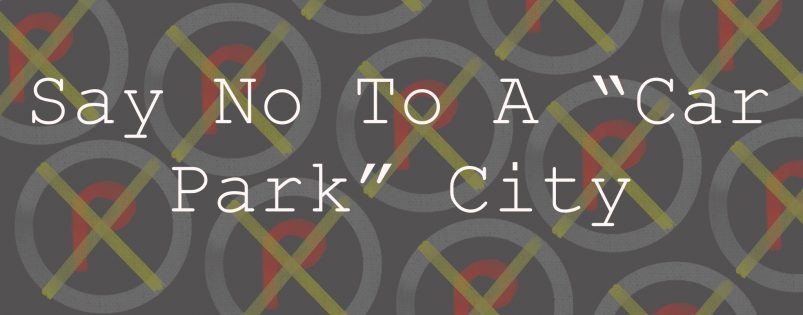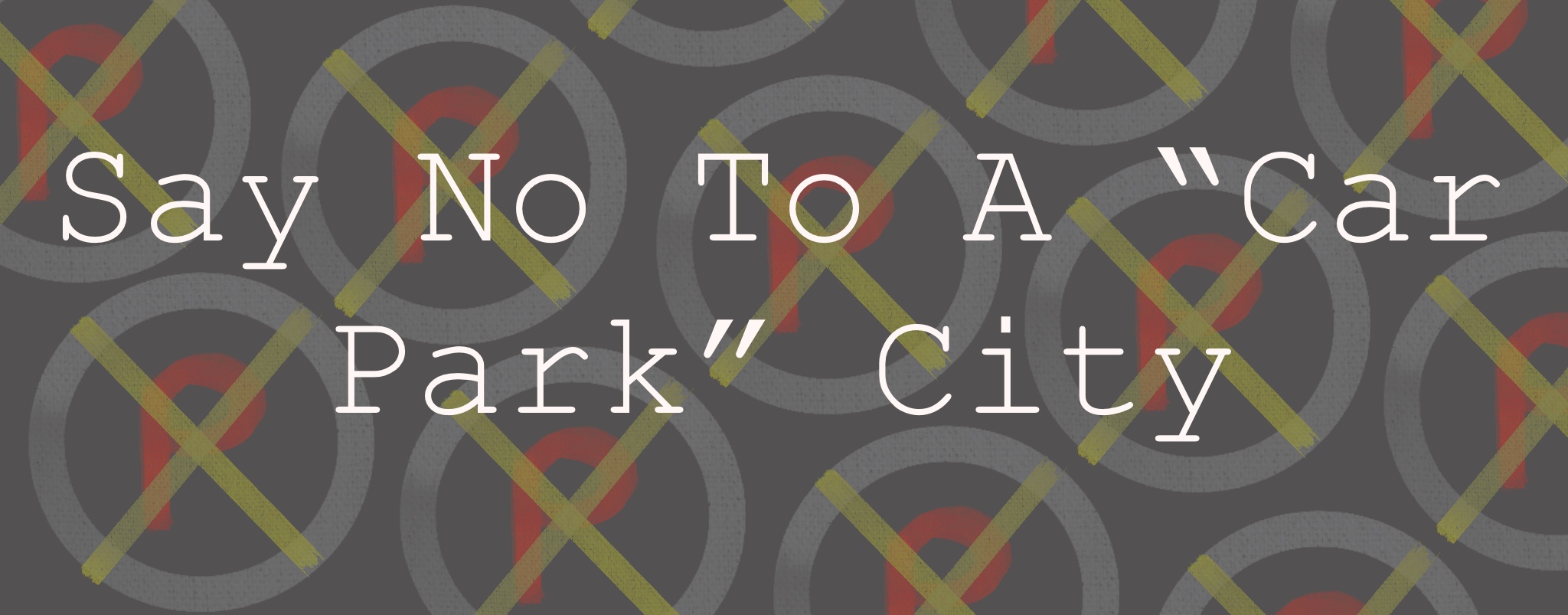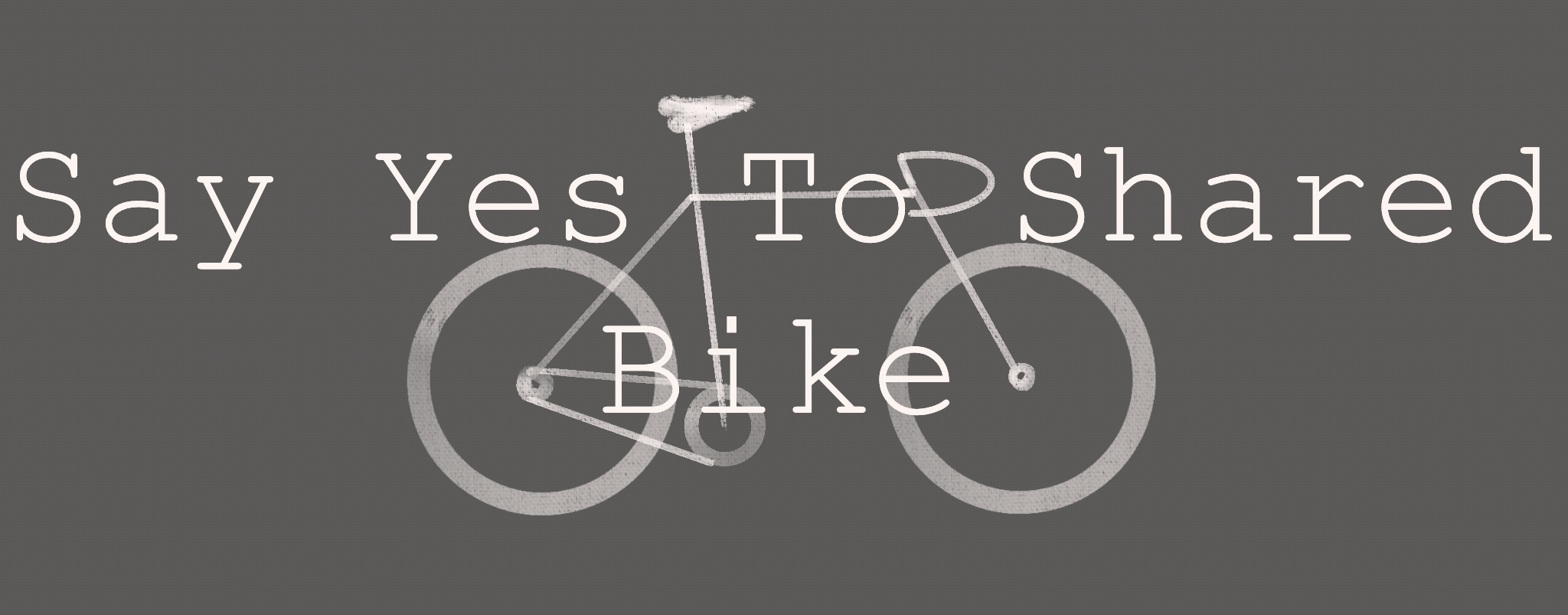
Say no to a “car park” city

Say no to a “car park” city created by Yanlan
“I feel like I’m living in a car park.”
This sentence popped up in my mind when I was 12.
My home city is Shanghai, a modern, fast-developing and densely populated metropolitan. Similar to other big cities, various types of vehicles are flooding on streets 24 hours every day. For me, it is a common sense, mostly from lived experiences of people around me, that it seldom takes less than 20 minutes to find a parking place, no matter it is on-street or in a carpool.
I hate all of the energy and time wasted in finding parking places. Sometimes, if you are lucky enough, you probably will find one after spending 20 minutes driving around the neighbourhood several times. However, if the thing is not going well, you may find yourself tied up in your car and finally go berserk.
Normally, people regard parking places as the accessories of a neighbourhood. But for me, it is not true. Ever since my family moved to a newly-built middle-class neighbourhood, I have been feeling like I am living in a car park.
What occupies the largest area of land in our neighbourhood are not trees or bushes, they are cars or parking places. Each building, which has 11 floors and 22 households, is surrounded by numerous well-organised parking slots. Besides, there is also a large underground car park in our neighbourhood.
I have once imagined if I were a bird looking from the sky, this large area would definitely look ugly and weird because so many tiny things (cars) are densely put around a rectangular object, and there is little space left for refreshing and beautiful greening. This must be a nightmare for a person with trypophobia.
Worse still, I can’t remember how many times when I am having a walk with my family in the night, two streaks of light suddenly appear from our back like the eyes of a giant monster. Then we have to give way to the car behind because the road is too narrow to contain a car and a few pedestrians at the same time. After 10 minutes, I can see the same car passing by. The reason is obvious: there is no parking place. Sometimes, if drivers are so unfortunate, those cars will end up parking on the footpath or even on the grass.
My family didn’t escape from this terrible car-bound lifestyle either. My parents bought a Ford car when I was 11.
I was so happy in the first because I no longer need to wait 15 minutes at a bust station and bear the horribly-crowded bus during peak hours. However, when the passion disappeared, along with the increasing number of cars in our neighbourhood, owning a car has become a burden, even torture.
Every time my father drives the car out of a parking slot, he looks as if he lost something precious.
I asked him: “Why do you look so sad?”
My father sighed:” You never know whether you can find a parking slot again when you come back home.”
It sounds hilarious, but it is the reality. I wonder if every car owner in a large city like Shanghai has ever made a calculation if the time they save from taking public transit can surpass the time they spend in traffic jams and finding parking places.
After having been struggling in this car-bound lifestyle for 4 years, my parents finally made up their mind. They sold the car.
My mother said:” I cannot stand my life being bound with a car any more. It is so terrible. I feel I am relieved the moment I give away the car key.”
After selling the car, I surprisingly found that my life became happier and healthier. My parents will no longer quarrel about whom should be responsible for parking the car. We saved a large amount of money in gasoline, car-washing and maintenance. Better still, I start to enjoy encountering unexpected strangers and unfamiliar views on the bus, although it is still terrible to take a bus during peak hours.
The problem of cars has not bothered me until I met my cousin Xie one day. She was 28 then and about to get married.
We planned to meet in a downtown coffee shop. However, the meeting time was close, but she still didn’t show up. I called her, and she sounded so outraged in the phone:” I have been driving around for 30 minutes to find a parking place. Just 5 minutes ago, a driver took the parking slot I found in front of me! Now I don’t know how long it takes to find another one!”
After I have been sitting in the coffee shop for 45 minutes and drank two cups of coffee, Xie finally came.
I didn’t know when Xie bought a car. She told me that her fiancé and she afforded the expense together and as a result, they have a heavy car debt to pay.
I couldn’t understand why Xie and her boyfriend so recklessly decided to buy a car that they could barely afford just because they were going to get married. Xie explained: “Owning a car is a prerequisite for your marriage. Everyone has to go through this process.”
I wondered: “But do you really need a car or just want a car?”
Xie answered: “Honestly speaking, it is faster to go to work by bus and I probably won’t use the car very often. I just think we need to buy a car at this stage.”
Xie’s remarks represent a very common mindset shared by Chinese people. A car is no longer purely a vehicle; it is a symbol of a person’s social-economic status. Owning a car means you have purchased a ticket to a middle-class lifestyle.
Noticeably, the blind pursuit of cars is a consequence of splendid consumerism embedded in car advertisements. Car companies always associate their cars with a fancy and successful life.
However, does every purchaser of a car ever think carefully about whether they really need a car? Have they separated the distinction between “needing a car” and “wanting a car”? Have they ever thought about the resources wasted in producing those cars that have low usage? Have they ever considered how much area of land is wasted in building car parks? Buying a car is a splurge on a person’s savings, a waste of a city’s precious land and also severe damage to the vulnerable environment that we depend on.

The school gate is unseeable in the smog created by Yanlan
I witnessed the serious air pollution disaster that happened in China years ago. That was an unforgettable period of time in my life.
On the day when the weather forecast reported the highest level of smog warning, I was lost in the smog on my way to school because I could only see 5 metres in the smog. My school announced that all outdoor activities would be cancelled for students’ health, which is an unprecedented decision made by school leaders due to severe air pollution.
You can never realise the existence of pure and fresh air until you lose it. The sky was brown or yellow with thick smog around. It felt as if the armed force had cast a gas bomb. I could never imagine what an apocalypse looks like until smog appeared. Somehow the air “tasted” bitter, and I could hardly breathe.
There were various explanations about the forming of smog. However, many experts believed that green gas emissions from vehicles are the culprits of this disaster. It was until then I found that the Earth has been acutely destroyed by human beings.
However, even though I resist living in a “car park” city, it is hard to find a wonderful option to complement the shortcomings of public transit. This trouble has been haunting in my mind until Mobike emerged in 2017.

Say yes to shared bike created by Yanlan
Mobike provides shared bike service. By renting the bikes provided by Mobike at a fairly low hourly price, I don’t need to purchase my own one.
The biggest fun I enjoy with the shared bike is during peak hours. Those stunning orange bikes are easily found outside my high school campus. All I need to do is to use the app to scan the QR code and then I can enjoy my home trip.
Although I grew up in Shanghai, I hardly have got a chance to take a close look at this city. In the past years, I glanced at this city through small windows of buses or cars. The city views look distant and unreal. However, when I’m riding Mobike, I can feel the wind gently blowing my face and the leaves slowly falling on my shoulders. I enjoy the feeling of freedom and the breath of this vivid city.
I appreciate the appearance of shared bikes. They provide a perfect option for me to live a sustainable lifestyle without a car. The view of a city would be revived with more bikes and fewer cars.
